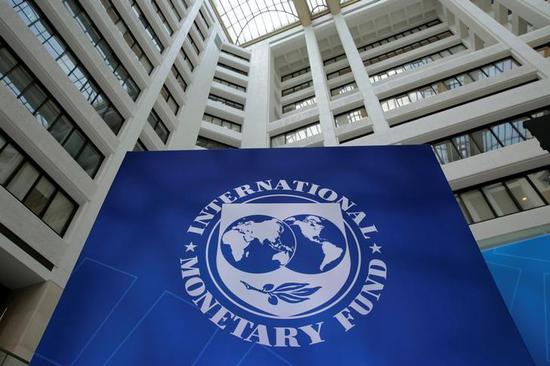Washington (People’s Daily) - The IMF released its latest World Economic Outlook on Tuesday, predicting that global economic growth will shrink sharply to minus 3 per cent in 2020, down 6.3 percentage points from its January 2020 forecast. But the IMF predicts the outbreak will subside in the second half of 2020, with economic activity returning to normal under policy support, and the global economy rebounding to 5.8 percent by 2021.

File photo
Gita Gopinath, the IMF's chief economist, said the world has changed dramatically in the three months since the last update of the World Economic Outlook in January. “As countries implement necessary quarantines and social distancing practices to contain the pandemic, the world has been put in a Great Lockdown. The magnitude and speed of collapse in activity that has followed is unlike anything experienced in our lifetimes,” she said.
She also noted that many countries now face multiple crises, including health crises, financial crises and plummeting commodity prices, which interact in complex ways.
The IMF said in the report that global growth forecasts are highly uncertain, influenced by a number of factors, including outbreaks, the extent and impact of supply chain disruptions, a sharp tightening of global financial market conditions, and changes in consumption patterns and behavior.
"This is the first time since the great depression that developed, emerging and developing economies have fallen into recession," said Gopinath, who expects per capita incomes to fall in more than 170 countries, but expects both developed and emerging markets and developing economies to partially recover by 2021.
Specifically, the IMF forecasts growth of minus 6.1 percent this year for developed countries and a recovery to 4.5 percent next year. Among them, the US will have a growth rate of minus 5.9 percent this year, and the Euro Area minus 7.5 percent. Both areas will rebound to 4.7 percent next year, the report predicted.
Developing and emerging markets will grow at minus 1.0 percent this year and 6.6 percent next year. China's economy is forecast to grow by 1.2 percent this year, one of the few countries still in positive territory, and 9.2 percent in 2021, the highest in the world.
Gopinath believed the cumulative cost of COVID-19 to global GDP in 2020 and 2021 could be about $9 trillion, larger than the economies of Japan and Germany combined. But she also pointed out that if the outbreak lasts longer this year, global GDP could fall another 3 percent by 2020. If it continues through 2021, global GDP could fall another 8 percent next year.
The IMF noted that with some sectors particularly hard hit, policymakers will need to implement a number of targeted fiscal, monetary and financial market measures to support affected households and businesses.
The IMF is calling for increased international cooperation in the response to the outbreak, including assistance to financially troubled countries facing dual health and funding shocks, as well as assistance to countries with weak health care systems, to work together to slow the spread of COVID-19 and to develop vaccines and treatments.
“Multilateral cooperation is vital to the health of the global recovery,” said Gopinath. She said that collaborative effort is needed to ensure that the world does not de-globalize, and the recovery is not damaged by further losses to productivity.


